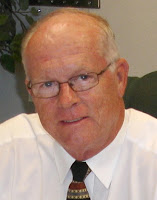I attended the regular meeting of the Collier County School Board on March 8 (minutes here; video here). Two comments made at the end of the meeting impressed me: Board Vice Chairman Roy Terry’s remarks regarding the current public discord between supporters of charter schools and supporters of traditional public schools, and Superintendent Kamela Patton’s report on the number of CCPS graduates who needed remediation classes upon entering Florida Gulf Coast University (FGCU) in the Fall 2015 term.
Roy Terry’s remarks
 |
| Roy Terry |
Mr. Terry was clearly troubled by what has become an ongoing, mean-spirited and disrespectful (my words, not his) back-and-forth taking place at School Board meetings, in the community and on social media between supporters of traditional public schools and supporters of charter schools. (Supporters of “home rule” and “parents rule” are being seen and heard more and more, too, through Terry didn’t mention them.)
He praised the variety of educational opportunities our District offers to meet the needs of Collier families and said, “I think we as Board members should make sure we recognize that all of our schools … deserve the support of all in Collier County, whether you’re a public school fan or a charter school fan or a private school fan.”
He gave examples of the many strengths of Collier County schools and teachers, and concluded by saying:
I don’t like to see things on Facebook and other places that [put] down one side or the other. I think all you’re doing is hurting children. You’re not making progress for one side or the other of the equation, so I think we need to stop some of that.
From usually mild-mannered Mr. Terry, those are strong words indeed. You can watch a YouTube video clip of his remarks here.
I, too, have been troubled by the words and tone of some of what I’ve seen and heard at School Board meetings and on social media. With the upcoming School Board elections, I fear it will only get worse. Whether supporting or criticizing the District, Superintendent, Board members or charter schools, I wish some of our community members and School Board members would be less vituperative and more respectful. What kind of example are they setting for the young people in our community?
What Mr. Terry said needed to be said, and I applaud him for it.
Superintendent Patton’s comment
 |
| Kamela Patton |
The other thing that impressed me was a comment Dr. Patton made toward the end of her closing remarks. She told us that the District had finally received some long-awaited data on the remediation rates of CCPS graduates who go on to college. Only Florida Gulf Coast University has provided the requested data so far, after what I surmise was many requests made by the District of more than this one higher-ed institution.
Of the 373 CCPS students who entered FGCU in the Fall 2015 term, 10 (2.7 percent) needed remediation, less than half the rate (5.9 percent) of FGCU’s out-of-state students.
This is a terrific reflection on our administrators, teachers and students, and something that deserves more public attention.
By way of background: incoming first-year students who lack the skills necessary to perform college-level work at the degree of rigor required by the institution are required to take remedial classes before being allowed to take regular college courses. A high remediation rate suggests that a school or district is doing a poor job preparing its students for college.
I did a Google search that revealed that, in some circles, high remediation rates for public schools are used to justify the need for Common Core standards and/or charter schools. See, for example, a January 2013 report prepared for the U.S. Department of Education’s National Center for Education Statistics under contract with American Institutes for Research titled First-Year Undergraduate Remedial Coursetaking: 1999–2000, 2003–04, 2007–08. Setting the context, the report began:
A primary goal of the U.S. Department of Education’s Elementary and Secondary Education Act (ESEA) Blueprint for Reform is to improve the college readiness of high school graduates (U.S. Department of Education 2010). College readiness is a complex benchmark and has been measured in several ways, including transcript analysis (Adelman 2006) and standardized test scores (ACT 2005). One such measure, and the focus of this [report], is remedial coursework enrollment. [links to sources added by me]
The report cited a 20 percent overall remediation rate for first-year undergraduate students enrolled in institutions of higher education in the 2007–08 academic year! See also, for example, How College Remediation Rates are Distorted — and Why (Update) in the July 7, 2014 Washington Post.
I subsequently received from the District the FGCU chart referred to in the meeting. In addition to the data shared by Dr. Patton, the chart showed that 119 full-time freshmen from 28 Florida school districts needed remediation upon entering FGCU in the Fall 2015 term, or 5.1 percent of those enrolled. Seven districts accounting for 96 freshmen had no students needing remediation, and seven districts accounting for 140 freshmen had ten percent or more students needing remediation.
Given Collier County’s demographics, I’d say our District is doing a very good job in preparing students for college!
I, like Dr. Patton, would like to see the remediation rates for CCPS graduates from ALL post-secondary schools they attend – and see it on a regular basis.
But for now, I say “Congratulations” to CCPS students, teachers, administrators and District staff for what appears to be a job well done in preparing our students for college.
I’m glad the District will continue to focus on college and career readiness in the 2017 – 2019 Strategic Plan, and urge them to use the remediation rate as one of the metrics to measure its performance toward that important goal.
Help me reach more Collier County voters by sharing this post with your friends. You and they can subscribe to Sparker’s Soapbox by email at www.sparkers-soapbox.blogspot.com, “like” me on Facebook at www.facebook.com/sparkers.soapbox or follow me on Twitter @SparkersSoapbox.
